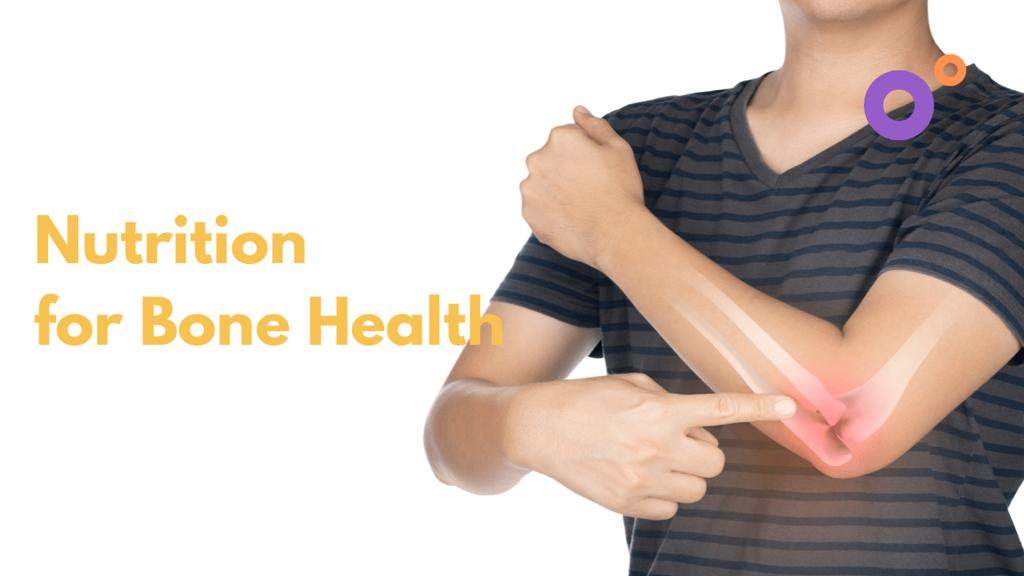Nutrition and lifestyle habits play an important role in building strong bones. One needs a healthy diet of fruits, vegetables, lean proteins, legumes, nuts and seeds to keep the bones healthy.
Calcium –
is essential for bones and if there is not enough calcium from dietary sources, the body raids its own bones and depletes calcium from it. It’s best to get your required calcium from foods like dairy (milk, cheese, yogurt), beans, soy, nuts, seeds, certain vegetables (leafy greens, rhubarb, artichoke, squash), fruits and seafood than supplements.
Vitamin D -
is important as it helps our bodies to absorb calcium and regulates blood levels of calcium and phosphorus (required to build bones). Our bodies make Vit D when sunlight turns a chemical in the skin into Vit D3 which the body transforms into a form of Vit D.
Consume protein –
about 50% of bones are composed of proteins which build, repair skin, muscles and the bones. Healthy sources of protein are dairy products, fish, poultry, whole grains, legumes, nuts, seeds and vegetables such as corn, broccoli and asparagus.
Vegetables -
increase bone mineral density or bone density (a measurement of calcium and other minerals) in your bones. Both osteopenia (low bone mass) and osteoporosis (brittle bones) are characterized by low bone density. During childhood intake of green and yellow vegetables increases bone mineralization and maintains bone mass in young adults.
Include Foods High in Magnesium and Zinc -
Magnesium converts vitamin D into the active form which promotes calcium absorption. Magnesium must be taken as a supplement as it is found only in small amounts in most foods. Zinc is a trace mineral needed for the mineral portion of the bones; promotes the formation of bone-building cells and prevents the excessive bone breakdown. Eat shrimps, spinach, flaxseeds, oysters and pumpkin seeds for zinc.
Omega-3 fats -
is well known for anti-inflammatory effects; it also protects against bone loss during the aging process. Chia seeds, flaxseeds and walnuts can be eaten as sources of Omega-3.
Perform strength training and exercises –
to promote bone formation and prevent bone loss among elders. Elders must do weight-exercise to increase bone mineral density, bone strength and bone size, as well as reduce markers of bone turnover and inflammation. Strength-training exercise is must for all women to increase muscle mass, protect against bone loss for even those suffering from osteoporosis, osteopenia or breast cancer.
Maintain a healthy weight -
for bone health because being underweight increases the risk of osteopenia and osteoporosis. This is especially important for postmenopausal women who don’t have estrogen to protect their bones. In fact, low body weight is the main reason for reduction in bone density and bone loss in this age group. On the other hand, even being obese can harm bone quality and increase the risk of fractures. Overall, losing and regaining weight harms bone health, so take care to maintain steady weight.
